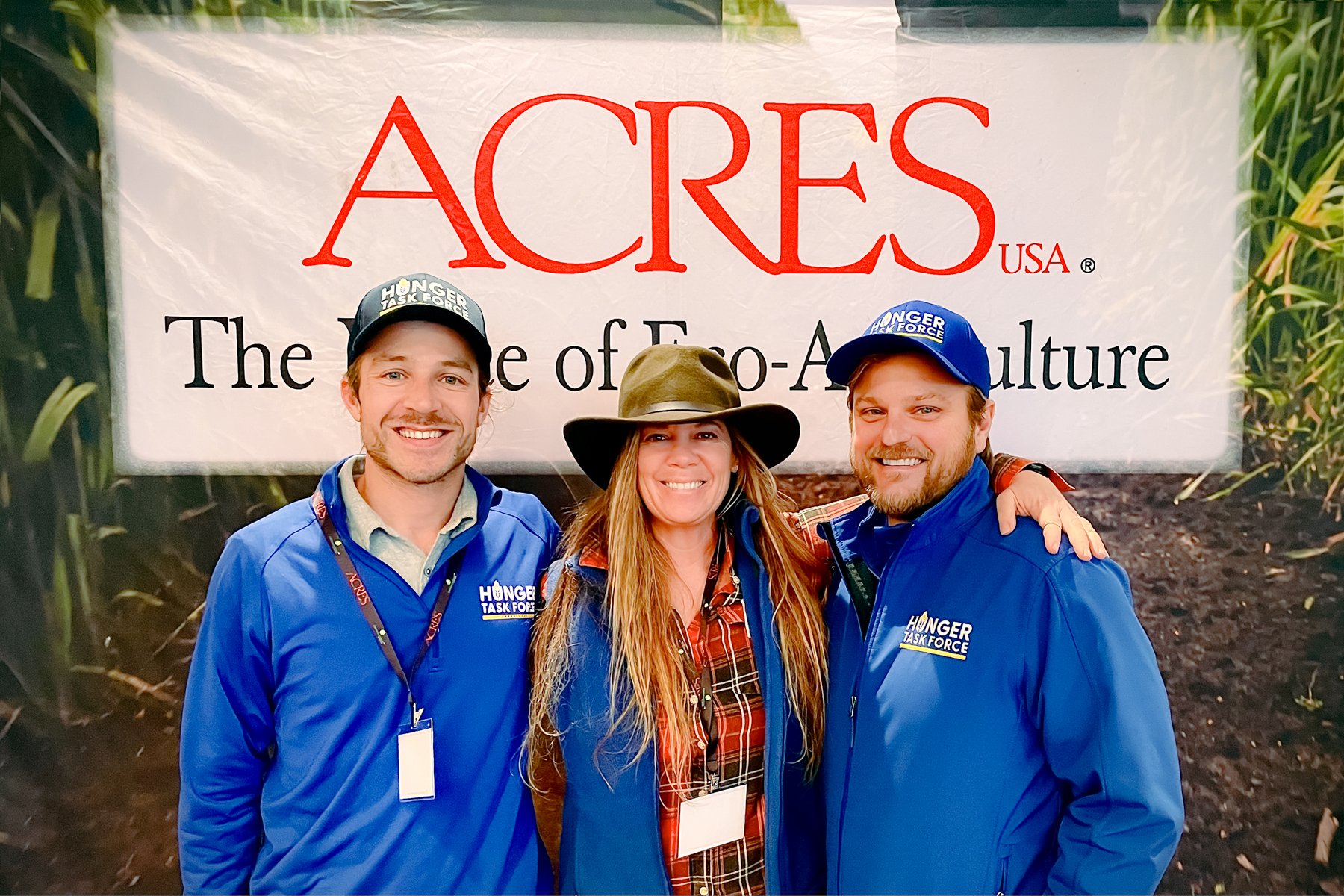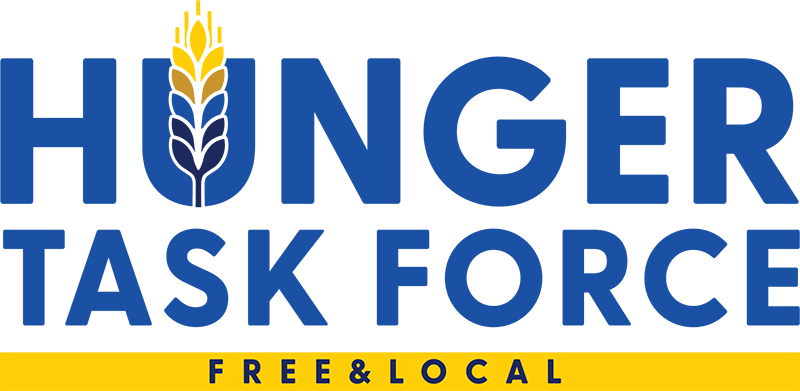Strengthening Sustainable Agriculture: Hunger Task Force Farm Director’s Insights from 2024 Eco-Ag Conference & Trade Show

Written by Sarah Bressler, Farm Director at Hunger Task Force.
————————
In late 2024, myself and two farmers from the Hunger Task Force Farm had the opportunity to attend the 2024 Acres U.S.A. Eco-Ag Conference & Trade Show in Madison, Wisconsin. The event showcased how regenerative agriculture is shaping the future and emphasized innovative and sustainable practices. For the Hunger Task Force Farm, participating in the conference reinforced the importance of stewardship—not just of the land we cultivate but of the community we nourish through fresh, healthy food.
Key Takeaways from Eco-Ag
The conference highlighted the value of practices like cover cropping, composting and reduced tillage in enhancing soil health by boosting microbial activity and nutrient availability. These methods, already in use at the Hunger Task Force Farm, reflect our commitment to sustainable agriculture. By prioritizing soil vitality, we can ensure consistent yields of fresh, nutritious produce for families in need while preserving the integrity of the land that supports our mission.
Another key insight from the conference was the importance of biodiversity in creating resilient ecosystems. By cultivating diverse crops and supporting pollinator habitats, we align agricultural practices with natural processes to boost productivity and reduce pest pressures. At the Hunger Task Force Farm, where half the acreage is preserved as natural areas and oak savannah, this commitment to ecosystem health directly enhances the sustainability and quality of the fresh produce we provide to Milwaukee families. Stewarding these adjacent landscapes strengthens the farmed land’s capacity to nourish kids, families and seniors in need.
Discussions on carbon sequestration reinforced the urgency of addressing climate change through agriculture. By considering the adoption of agroforestry and rotational planting methods, The Farm could capture more carbon while simultaneously enriching our soil and improving water retention. A more strategic look at these practices at The Farm would enhance our ability to be productive in the face of Wisconsin’s extreme weather events.
Collaboration emerged as a powerful theme, emphasizing how partnerships and shared learning enhance regenerative farming practices. Hunger Task Force is deeply committed to this principle which is exemplified through our participation in the Local Food Purchase Assistance (LFPA) program. This year, The Farm is collaborating with the Hunger Relief Federation, Seed Savers Exchange and REAP Food Group in a trial of heirloom collard greens. This initiative supports The Farm’s mission to grow high-quality produce, advance sustainable agriculture and steward resources for the community effectively. Additionally, the Hunger Task Force Farm is a member of the Wisconsin Farmers Union (WFU) and regularly hosts meetings at The Farm.
As we implement these strategies, the Hunger Task Force Farm will continue to lead in sustainable agriculture by balancing innovation and tradition to serve families in need with dignity and compassion. The lessons from this conference reaffirm our commitment to nurturing the land while feeding our neighbors in need.
Hunger Task Force is Milwaukee’s Free & Local food bank and Wisconsin’s anti-hunger leader. The organization’s core values are Dignity, Justice, Equity, Compassion and Stewardship. Hunger Task Force feeds people today by providing healthy and culturally appropriate food to hungry children, families and seniors in the community absolutely free of charge. Hunger Task Force also works to end future hunger by advocating for strong public policies and nutrition programs at the local, state and federal level.
